*Good Morning friends. Today Zumma Mubarak.
Today I will share with you the lifetime of the great philosopher Socrates.
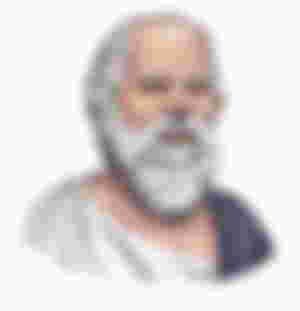
★Socrates:
(480 BC - 399 BC) is an ancient Greek philosopher. Information about this great philosopher is found in writing only from the dialogues of his disciple Plato and the writings of the soldier Xenophon. He was sentenced to death for drinking Hemlock poison. He is regarded as the founder of Western philosophy. He gave birth to a philosophical thought that has influenced Western culture, philosophy and civilization for over 2000 years. Socrates was a great general teacher who did not believe in teaching only through discipleship. He did not have any specific educational institution. Wherever he found, he tried to explain the answers to the basic questions. He has condemned the desire for pleasure in human consciousness, but has also delighted himself with beauty.

*Ancient philosophy
*Bhavguru:
Anaxagoras, Parmenides,
Prodicus, Diotima
*Disciple:
Plato, Aristotle, the rest of Western philosophy.
★Life and work:
Three sources can be cited today as the broad source of Socrates' life: the dialogues of Plato, the plays of Aristophanes, and the dialogues of Xenophanes. There is no evidence that Socrates himself wrote anything. In Aristophanes' play The Cloud, Socrates is shown as a clown who teaches his students how to get rid of debt. Since most of Aristophanes' works were satirical, the way in which Socrates is portrayed in these works is not entirely acceptable.
According to Plato, Socrates' father's name was Saffroniskas and his mother's name was Finariti who was a midwife. His wife's name was Janathipi who was much younger than Socrates. In their family life they had three sons named Lamproclus, Safroniskas and Menegenus. Socrates returned the request to flee before his sentence could take effect. Socrates' friend Crito then criticized him for abandoning his sons. Socrates was born in 480 BC in Athens, Greece

*It is not clear exactly how he made a living. According to Timon of Philadelphia and some other later sources, he followed his father's profession in his early life. His father was a sculptor. He spent his first life as a sculptor. In ancient times, many thought that Socrates' hand-painted statues of God's mercy existed in the Greek city of Acropolis until the second century. However, contemporary intellectuals have not found specific evidence of this.
On the other hand, there is evidence that Socrates did not pursue a career. In the symposium written by Xenophon, Socrates is heard to say that he will never take up any profession, because he will do exactly what he thinks is most important, and that is the discussion of philosophy. According to Aristophanes, Socrates paid for education and also ran a sophist school in Cheriphon, Greece. This commentary is found in his essay The Clouds. Plato's Apology and Xenophon's Symposium show that Socrates never took money in exchange for education. Rather, he pointed to his poverty to prove that he was not a professional teacher. He is heard to say:
""My habit is to divide myself among others; And that's why I used to collect philosophical discussion companions even if I didn't get it.""

*In various places in Plato's dialogues it is written that Socrates once joined the army. In Plato's account, Socrates said that he had joined the Athenian army in three expeditions. These expeditions took place in Patidia, Amphipolis and Delium, respectively. The symposium describes a character named Alcibiades who describes Socrates' heroism in the battles of Patidia and Delium and how he saved his own life in a previous battle. His extraordinary contribution to the Battle of Delium is also described in an essay called Lakis. Occasionally Socrates compares court problems to battlefields. He said it was as important for a soldier to consider whether a judge would deviate from philosophy as it was for a soldier to leave the battlefield if the right situation arose.
Socrates was not handsome at all. His overall appearance consisted of a bald head, a flattened down nose, small eyes, a swollen abdomen, and unusual movements. Although his body was not very good, his sense of humor was strong. Rang used to say: "As the nostrils get bigger, there is a special advantage of smelling; the nose is more flat and vision is not obstructed anywhere." He was a good man at heart and could rarely do any harm to anyone. So anyone who spoke to her was fascinated by her speech and beauty of character. He did not teach in any educational institution as per the description of most of them. Roads, ghats and bazaars were his educational institutions. While practicing philosophy, he became very indifferent about his family and livelihood. That is why in his last life his whole family had to live in poverty and starvation. Most of the time he ate and drank at the home of his disciples. He was despised by his wife Janathipi. Janathipi often said that her inactive husband did not bring good fortune to the family but brought more misery. But no matter how bitter it was outside, Janathipir had love for her husband in her heart. Evidence of this love is found in the way he mourns the death of Socrates.
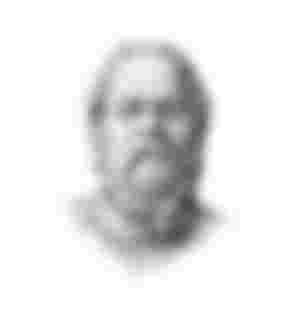
★Philosophical methodology:
* Main article: Socrates' method
Socrates was a believer in dialectical methods like the philosopher Zeno. In this method the opinion of the opponent is first accepted, but then that opinion is refuted by reasoning. A major vehicle for this approach is question-and-answer. Socrates continued his philosophical discussions through question and answer. At first he would trap his opponents and ask questions one by one. The question continued until the opponent was defeated and admitted his mistake. Another name for this method of Socrates is Socratic irony.
★Some philosophical quotations:
*It is ugly to live an untested life.
*Clothing is the outer covering, the real beauty of man is his knowledge.
*Know thyself. Knowledge. The other one is bad, ignorance.
*I can't teach anyone, I can only make them think.
*Surprise is the beginning of knowledge.
*It is better to be uneducated than to get education in exchange for money.
*A friend is a common mind of two hearts. , Not in knowing anything else.
*You don't know anything, knowing it is the real meaning of knowledge.
*Get married anyway.
*If your wife is good, you will be happy, and if she is bad, you will be philosophical.
*Beware of the infertility of busy life.
*We should pray for the good of the common man.
*Only God knows what is best for us.
*True knowledge comes to all of us when we realize how little we know about our lives, about ourselves and everything around us.
*The brave man who does not run away is responsible for his enemies and Fight against.
*Use yourself in other people's writing for your own development so that you can easily understand what other people are working hard for.
*The way to achieve fame is to try to emerge as what you want to be. Be kind.
*Be kind to everyone even in difficult battles.
*Strong mind discusses ideas, average mind discusses events, weak mind discusses people.
*Make friendship slowly, but when friendship is strong and lasting. Great blessing.

★Judgment and death:
The Death of Socrates, painted by Jack Louis David in 18 AD
*Main article: Judgment of Socrates.
Socrates survived the entire period, from the heyday of the Athenian Empire to the defeat of Sparta and its allies in the Peloponnesian War. As Athens struggled to recover from its defeat, its people began to question the legitimacy of democracy as a functioning form of government. Socrates also made his debut as a critic of democracy. So many have interpreted the trial and death of Socrates as politically motivated.

The Athenian government convicted Socrates so that he could be sentenced to death. But his qualities and steadfast attitude towards the truth were able to create a real conflict with the government policy and society of that time. In this context, Thucydides states: "In a word, it can be applauded for the fact that for the first time someone has enacted an immoral law and encourages another person to commit a crime that he never thought of committing." [3] Socrates directly. Or in some other way at different times Sparta has praised many principles that Sparta was the worst enemy of Athens. Despite all this, historically his greatest crime in the eyes of society was his sharp criticism of the social and moral spheres. According to Plato, Socrates acted as a poison for the government, which was based on criticism of the establishment of the judiciary and its good intentions. The Athenians' attempt to increase their loyalty to justice can be attributed to his punishment.
According to Plato's Apology, Cheriphon, a friend of Socrates, visited the Oracle in Delphi one day and asked if there was anyone wiser than Socrates. Oracle replied that there was no one wiser than Socrates. From then on, Socrates was seen in the eyes of society as a state criminal and a poison for the government. Socrates believed that the word oracle was a mere riddle. Because the oracle never praises a particular person for gaining knowledge. To test whether this was an enigma at all, Socrates approached some of the common Athenians whom he considered wise and began to ask questions. He questioned the people of Athens about goodness, beauty and quality. After hearing the answers, he realizes that none of them know the answers to these questions but thinks that they know everything. From this he concludes that Socrates is the wisest and most wise man in the sense that he never thinks he knows what he does not know. Such enigmatic wisdom and knowledge plunged the then-famous Athenians into embarrassment. When they went in front of Socrates, their faces began to dry up. Because they could not answer any question. From this everyone started opposing him.

Socrates was also accused of inciting immorality and corruption in the young community. He was sentenced to death after considering all the charges. The means of death are fixed Hemlock drink poison. The account of Socrates' death is quoted at the end of Plato's Fido. Socrates turned down Crito's request to escape from prison. After drinking the poison, Socrates is ordered to walk until his feet feel heavy. The man who had put the poison in Socrates' hand after he lay down cut the pinch in his leg. Socrates could not feel that pinch. Numbness descended on his body. The heart stops beating. The last sentence he uttered before his death was: "Crito, Asclepius gets us a rooster, so don't forget to pay his debt." Asclepius is the Greek god of healing. From Socrates' last words, he meant that death is healing and liberation of the soul from the body. The Roman philosopher Seneca tried to imitate Socrates at the time of his death. Seneca was also forced to commit suicide at the behest of Emperor Nero.

The End......
Thanks for waiting..........
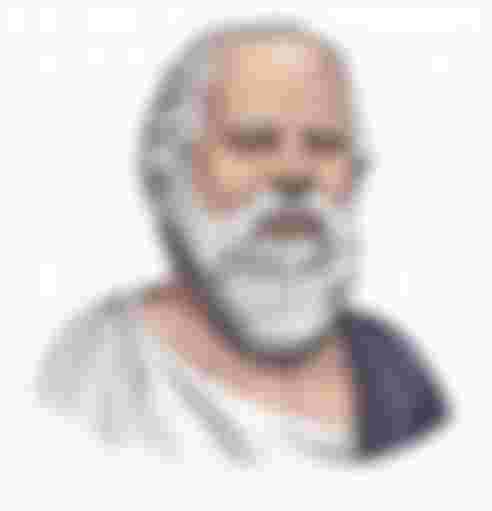


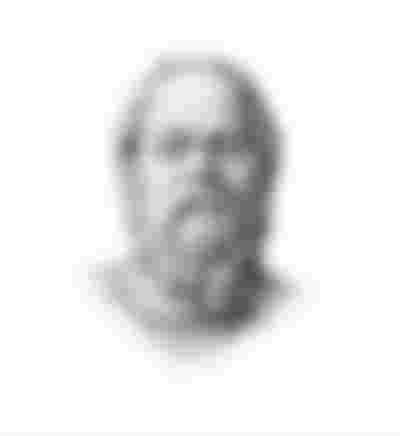

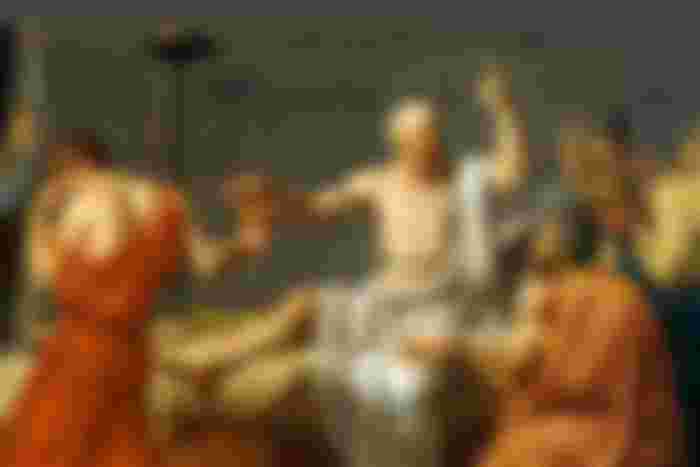
lekhati darun chilo..asa kori ghure asben amar lekhao